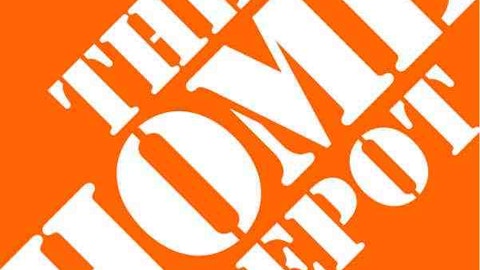Home sales have been improving of late. The momentum of the recovery has increased notably in recent months. Now, with mortgage rates inching higher, buyers are acting to lock in low rates. That’s a good thing now, but could turn ugly quickly.
Home bubble
Leading into the 2007 to 2009 recession, home prices were rocketing skyward. The quick escalation in home prices led to the belief that buying a house at virtually any price would be rewarded because the value would just keep growing to the sky.
However, time proved that trees, and home prices, don’t grow to the sky. The bursting of the housing bubble took the economy and the stock market along with it as it crashed to the earth. The housing market is finally starting to shift back to growth mode. Only this time, cheap prices and low interest rates are the allure.
Indeed, as prices cratered, institutional buyers started to step in to create an institutional single family home market. The big player is The Blackstone Group L.P. (NYSE:BX), but a few real estate investment trusts have also come along with a single family home focus. That’s helped to dry up the availability of cheap existing homes and push sales of newly built houses.
New homes

Lennar Corporation (NYSE:LEN) and D.R. Horton, Inc. (NYSE:DHI) build starter homes and step up homes. They have benefited from being at the lower end of the price spectrum. D.R. Horton, Inc. (NYSE:DHI)’s earnings went from around a quarter a share in 2011 to well over $2 last year. Lennar Corporation (NYSE:LEN)’s earnings improved from around $0.50 a share in 2010 and 2011 to over $3 in 2012. While those growth rates are clearly unsustainable, there is no reason right now to expect the growth story to stall.
For example, the number of homes that Lennar Corporation (NYSE:LEN) built and delivered was up 28% year over year in the first quarter. New orders were up an even more impressive 34%, and the company’s backlog is up 82% based on the number of homes, and 105% based on the dollar value of those homes. Horton’s numbers are similarly impressive.
Toll Brothers Inc (NYSE:TOL), which sells higher-end fare, has benefited lately from a shift toward more expensive homes. Keying in on the high end led to a sales decline of 75% between 2006 and 2011. But a corporate streamlining effort allowed Toll Brothers Inc (NYSE:TOL) to earn nearly a quarter a share in 2011 despite the massive top line fall. Earnings jumped to over $2.80 a share last year.
In the first quarter, unit sales were up 33%, year over year, and new orders were up 36%. Backlog was up 36% based on units and 57% in dollar terms. The value of the average home delivered in the quarter was $577,000, up from $569,000 the prior year. However, the average price of a home in the backlog is $693,000. Clearly, prices are heading higher.
Rate rocket
Interest rates being at historic lows have been a huge support to the housing market. Low rates simply make buying a house easier. That said, the slight uptick in interest rates of late has lit a fire under some home buyers. Only this time, the push is to lock in cheap rates while they last.
Bloomberg notes that mortgage rates are at their highest level in more than a year. That could be a mixed blessing for the home builders. In the near-term, buyers will feel more pressure to buy homes before rates move too high and push a purchase out of reach. However, there will be a tipping point where rates go too high and home sales fall off.
Who gets hurt first?
D.R. Horton, Inc. (NYSE:DHI) and Lennar Corporation (NYSE:LEN) are likely to see home sales cool before Toll. Their starter home segment is likely to be more sensitive to affordability issues than Toll’s higher-end customers. Investors should keep a close eye on the new contracts and average selling prices at D.R. Horton, Inc. (NYSE:DHI) and Lennar Corporation (NYSE:LEN). That could give an indication of future risk at Toll.
All three stocks, however, are being driven by momentum investors right now. So, quick shifts in sentiment are a key risk. The recent market downdraft has taken all three lower of late. However, as long as fundamentals remain solid, the stocks should hold up relatively well. That said, be ready to move fast if rising rates change the sales environment for the worse.
With so much of the financial industry getting bad press these days, it may be a greedy when others are fearful moment. Not surprisingly, some of Warren Buffett’s biggest investments are in the space.
The article Could Rising Rates Deflate the Housing Rebound? originally appeared on Fool.com.
Reuben Brewer has no position in any stocks mentioned. The Motley Fool has no position in any of the stocks mentioned. Reuben is a member of The Motley Fool Blog Network — entries represent the personal opinion of the blogger and are not formally edited.
Copyright © 1995 – 2013 The Motley Fool, LLC. All rights reserved. The Motley Fool has a disclosure policy.




